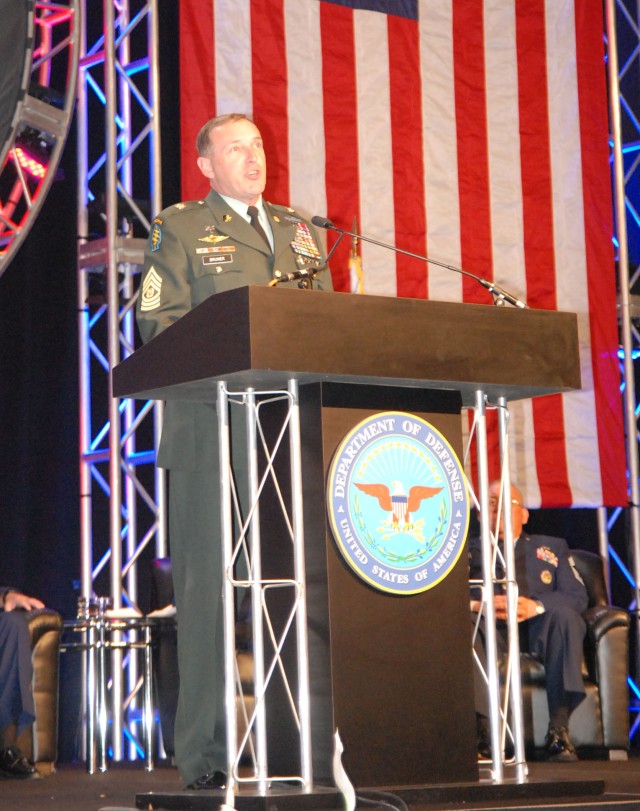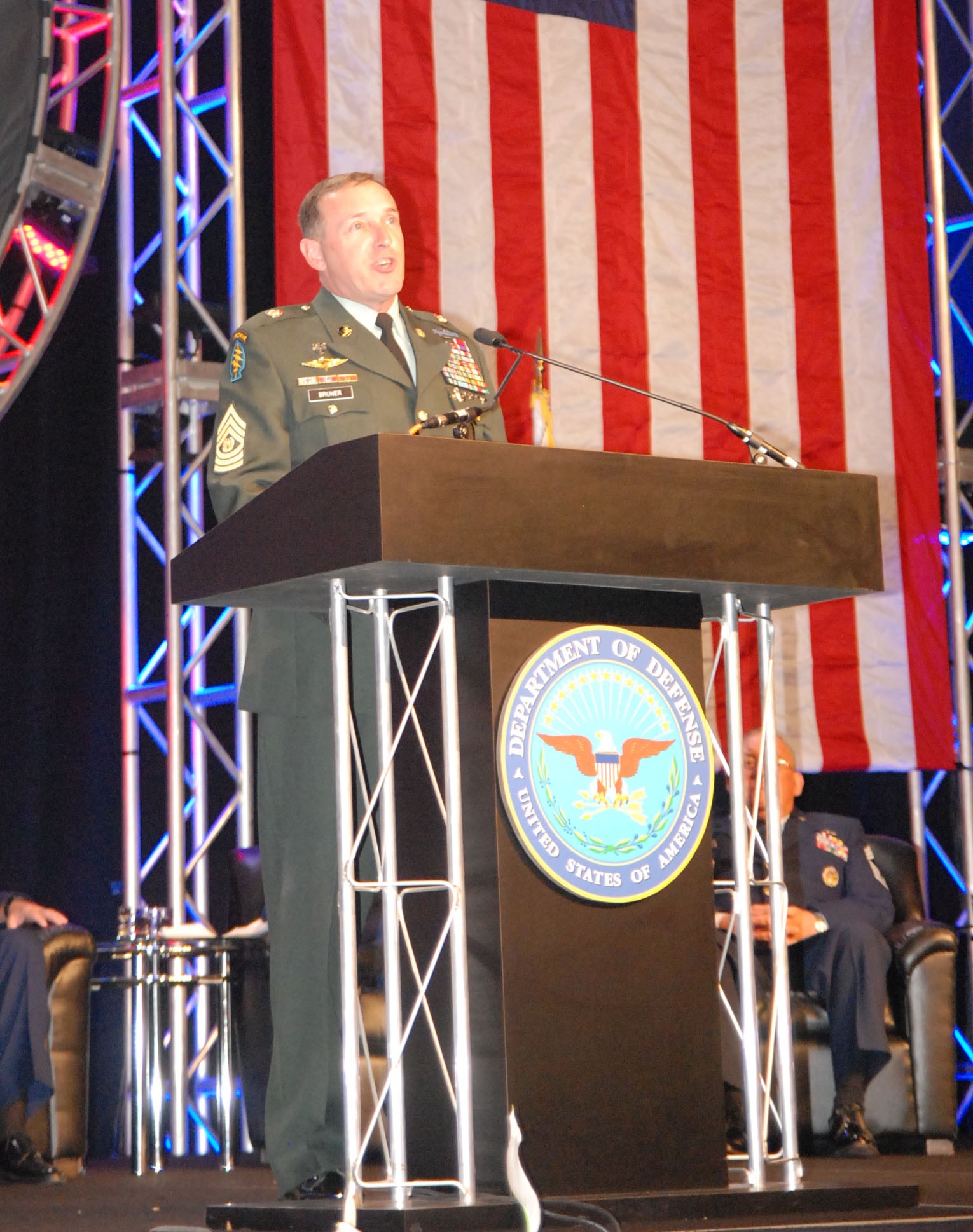
ATLANTA (TRADOC News Service) -- "The side that has the smartest Soldiers...is the side that wins war."
Command Sgt. Maj. David M. Bruner of the U.S. Army Training and Doctrine Command issued those remarks during the DoD Worldwide Education Symposium 2009 recently at the Marriott Marquis Hotel in Atlanta, Ga.
The symposium brought together senior military leaders, military educators and college, university, and financial aid representatives to highlight military education opportunities.
George Sweet, DoD Relations, University of Maryland University College (UMUC), said the symposium gave senior military leaders the chance to see a cross section of education opportunities for servicemen and women.
"You feel a positive impact of helping servicemembers when you see them graduate," Sweet said.
TRADOC charts the training course for all Soldiers in the Army.
Bruner explained to the symposium's attendees how Soldiers who enter today's Army learn about the College of the American Soldier where they can enroll with partner colleges to earn an associates or bachelors degree while on active duty.
The Army Career Tracker, Bruner said, will allow leaders to monitor their Soldiers' education progression from anywhere in the world. ACT will help Soldiers monitor education, professional and training progression on one easily accessible site, he said, whether at home, in garrison or deployed.
Soldiers' education opportunities are not limited to the civilian sector. Through TRADOC, the Army provides military education and training opportunities for Soldiers throughout their careers.
TRADOC's training units create learning opportunities to expand the NCO Corps' intellectual capabilities. One example is the emphasis on writing and communications skills at Fort Rucker's Advanced NCO Course and Basic NCO Course.
NCO's launch NCO Net and Aviation Net sites to respond to articles. Fort Rucker will also offer a writing award to solicit articles for professional publications. TRADOC is revamping military education and improving leadership roles for NCO's.
Again, this is just one example of the training opportunities in the field. There are good-news stories at other sites, too, Bruner said:
BNCOC transitioned into the Advanced Leaders Course, or ALC, and ANCOC transitioned to the Senior Leaders Course, or SLC, to help develop broadly skilled, adaptive leaders.
ALC and SLC include competencies NCO's will need to mentor and lead Soldiers in squads, platoons and companies, Bruner said. These include financial management, supervising maintenance and training, conducting military briefings and learning the Army Writing Style.
The next step is to transition common NCO corps courses to Web-based learning, a technique established this year with the U.S. Army Sergeants Major Academy class 60.
TRADOC is expanding leadership opportunities as well, Bruner said. Command Sgt. Maj. Teresa King will take over as commandant of the U.S. Army Drill Sergeant School. She is the first female to hold this position.
"There needs to be opportunities for everyone," Bruner said. "She will ensure drill sergeants embody the Army's standards and instill those standards in new recruits."
TRADOC is instituting the Advanced Individual Training Platoon Sergeant Competition to ensure AIT platoon sergeants are recognized for the training, guidance and mentorship they give new recruits. The competition will include scripted situations the platoon sergeants will have to think through and demonstrate their proficiency to make correct, proper decisions affecting their Soldiers.

Social Sharing